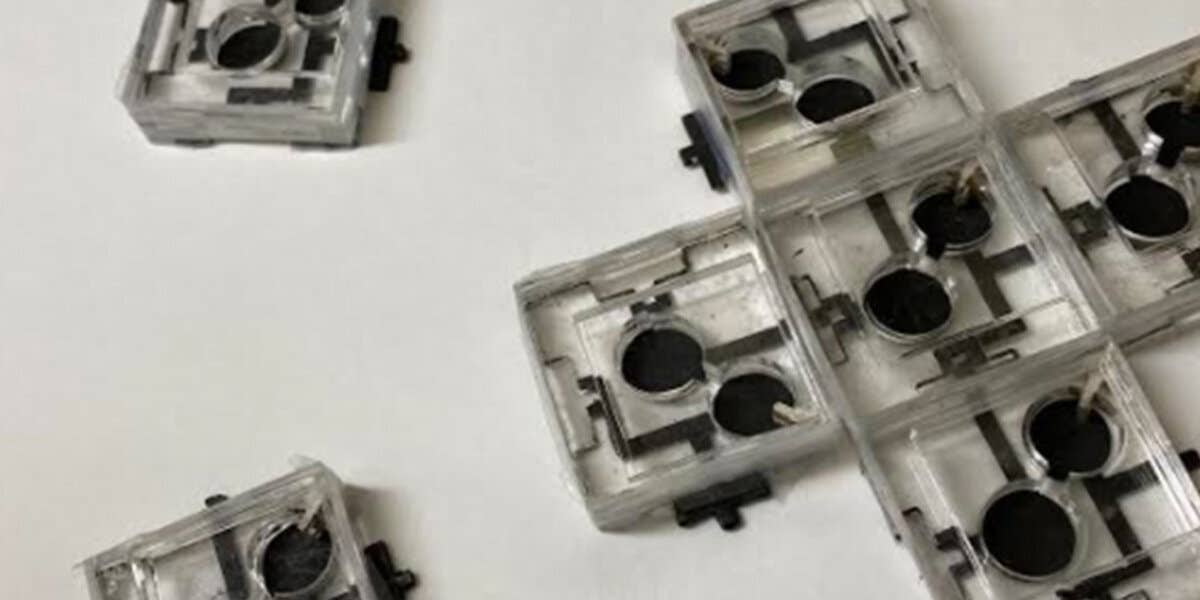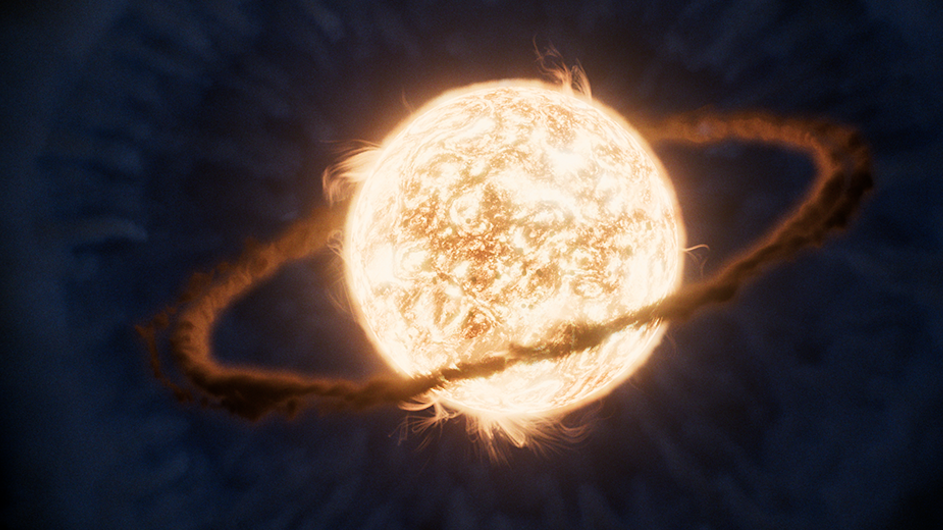Biobatteries use bacteria to generate power for weeks
Researchers have developed a “plug-and-play” biobattery that lasts for weeks and can be stacked to improve output voltage and current.

[June 26, 2022: Chris Kocher, Binghamton University]
Professor Seokheun “Sean” Choi's new “plug-and-play” biobattery that lasts for weeks at a time and can be stacked to improve output voltage and current. (CREDIT: Anwar Elhadad et al, Journal of Power Sources (2022))
As our tech needs grow and the Internet of Things increasingly connects our devices and sensors together, figuring out how to provide power in remote locations has become an expanding field of research.
Professor Seokheun "Sean" Choi—a faculty member in the Department of Electrical and Computer Engineering at Binghamton University's Thomas J. Watson College of Engineering and Applied Science—has been working for years on biobatteries, which generate electricity through bacterial interaction.
One problem he encountered: The batteries had a lifespan limited to a few hours. That could be useful in some scenarios but not for any kind of long-term monitoring in remote locations.
In a new study published in the Journal of Power Sources, Choi and his collaborators have developed a "plug-and-play" biobattery that lasts for weeks at a time and can be stacked to improve output voltage and current. Co-authors on the research are from Choi's Bioelectronics and Microsystems Lab: current Ph.D. student Anwar Elhadad, and Lin Liu, Ph.D. (now an assistant professor at Seattle Pacific University).
Related Stories
Choi's previous batteries had two bacteria that interacted to generate the power needed, but this new iteration uses three bacteria in separate vertical chambers: "A photosynthetic bacteria generates organic food that will be used as a nutrient for the other bacterial cells beneath. At the bottom is the electricity-producing bacteria, and the middle bacteria will generate some chemicals to improve the electron transfer."
The most challenging application for the Internet of Things, Choi believes, will be wireless sensor networks deployed unattended in remote and harsh environments. These sensors will be far from an electric grid and difficult to reach to replace traditional batteries once they run down. Because those networks will allow every corner of the world to be connected, power autonomy is the most critical requirement.
"Right now, we are at 5G, and within the next 10 years I believe it will be 6G," he said. "With artificial intelligence, we are going to have an enormous number of smart, standalone, always-on devices on extremely small platforms. How do you power these miniaturized devices? The most challenging applications will be the devices deployed in unattended environments. We cannot go there to replace the batteries, so we need miniaturized energy harvesters."
Choi compares these new biobatteries—which measure 3 centimeters by 3 centimeters square—to Lego bricks that can be combined and reconfigured in a variety of ways depending on the electrical output that a sensor or device needs.
Among the improvements he hopes to achieve through further research is creating a package that can float on water and perform self-healing to automatically repair damage incurred in harsh environments.
"My ultimate target is to make it really small," he said. "We call this 'smart dust,' and a couple of bacterial cells can generate power that will be enough to operate it. Then we can sprinkle it around where we need to."
For more environmental news stories check out our Green Impact section at The Brighter Side of News.
Note: Materials provided above by Binghamton University. Content may be edited for style and length.
Like these kind of feel good stories? Get the Brighter Side of News' newsletter.
Joshua Shavit
Science & Technology Writer | AI and Robotics Reporter
Joshua Shavit is a Los Angeles-based science and technology writer with a passion for exploring the breakthroughs shaping the future. As a contributor to The Brighter Side of News, he focuses on positive and transformative advancements in AI, technology, physics, engineering, robotics and space science. Joshua is currently working towards a Bachelor of Science in Business Administration at the University of California, Berkeley. He combines his academic background with a talent for storytelling, making complex scientific discoveries engaging and accessible. His work highlights the innovators behind the ideas, bringing readers closer to the people driving progress.



